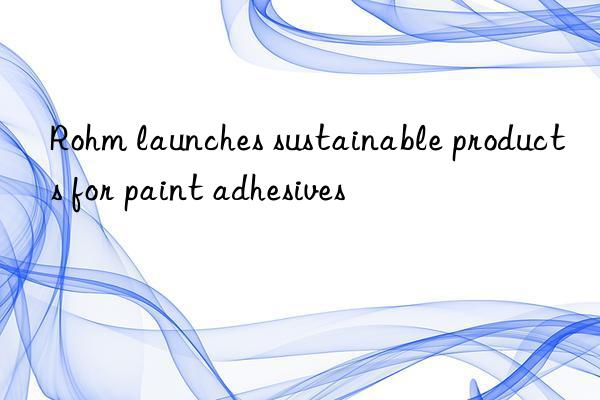
According to reports, compared with resins made of fossil-based raw materials, DEGALAN proTerra materials use 35% recycled PMMA, and the carbon dioxide emissions of the products can be reduced by about 15%, which is conducive to promoting the development of circular economy and addressing climate change.
Rohm said that to assume social responsibility and achieve sustainable operations, enterprises need to take effective measures to protect the climate and resources. Therefore, the company has set a carbon emission reduction goal, that is, to achieve zero carbon emission by 2050 and promote the development of circular economy. This coincides with the goals of players in the coatings and adhesives industry. Rohm emphasized that achieving the SDGs requires concerted efforts across the value chain. ROHM will develop environmentally friendly production processes through technological innovation and capital investment, use renewable raw materials and energy, and increase the use of recycled materials to reduce carbon footprints and achieve a circular economy.
Rohm believes that understanding the needs of customers, investors and society as a whole is a key cornerstone in the development of its new DEGALAN proTerra product line. Rohm will positively influence the coatings and adhesives industry by developing sustainable products, oriented toward climate protection and resource conservation.



 微信扫一扫打赏
微信扫一扫打赏
